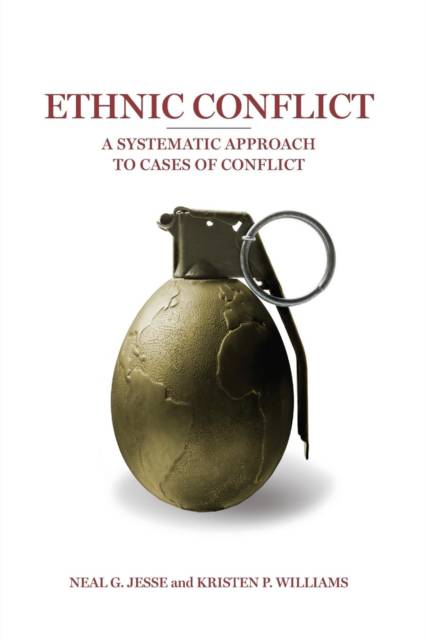
- Retrait gratuit dans votre magasin Club
- 7.000.000 titres dans notre catalogue
- Payer en toute sécurité
- Toujours un magasin près de chez vous
- Retrait gratuit dans votre magasin Club
- 7.000.0000 titres dans notre catalogue
- Payer en toute sécurité
- Toujours un magasin près de chez vous
Ethnic Conflict
A Systematic Approach to Cases of Conflict
Neal G Jesse, Kristen P Williams
Livre broché | Anglais
178,45 €
+ 356 points
Description
As ethnic groups clash, the international community faces the challenge of understanding the multiple causes of violence and formulating solutions that will bring about peace. Allowing for greater insight, Jesse and Williams bridge two sub-fields of political science in Ethnic Conflict - international relations and comparative politics. They systematically apply a "levels of analysis" framework, looking at the individual, domestic, and international contexts to better explore and understand its complexity. Five case study chapters apply the book's framework to disputes around the world and include coverage of Bosnia, the Israeli-Palestinian conflict, Northern Ireland, Sri Lanka, and Sudan. Never losing sight of their analytical framework, the authors provide richly detailed case studies that help students understand both the unique and shared causes of each conflict. Students will appreciate the book's logical presentation and excellent pedagogical features including detailed maps that show political, demographic, and cultural data.
Spécifications
Parties prenantes
- Auteur(s) :
- Editeur:
Contenu
- Nombre de pages :
- 432
- Langue:
- Anglais
Caractéristiques
- EAN:
- 9780872894921
- Date de parution :
- 09-02-10
- Format:
- Livre broché
- Format numérique:
- Trade paperback (VS)
- Dimensions :
- 152 mm x 226 mm
- Poids :
- 521 g

Les avis
Nous publions uniquement les avis qui respectent les conditions requises. Consultez nos conditions pour les avis.






